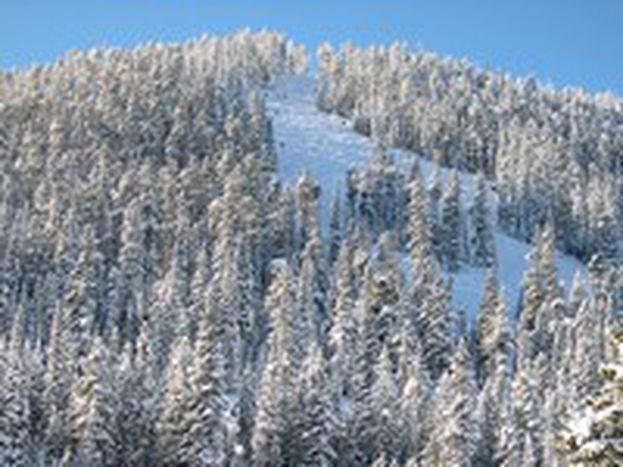
'No snow'
Published on
Translation by:
Andrew BurgessWinter is becoming disturbingly mild, humid and snow-less, a fact which is making the ski industry sweat
'No Snow.' The message is identical from the Alps to the Vosges, passing via the Jura. World Cup Skiing events and resorts are being respectively cancelled and closed, whilst holidaymakers who usually visit the mountains are now coming equipped with swimsuits. Climate change is firmly in the spotlight, and it's causing grief for ski operators.
Ski harbinger
Last January, the Organisation for Economic Co-operation and Development's (OECD) report on the effect of global warming on the European Alps said that 'snow, the foundation of this sector, is going to become much rarer to find.' If 90% of the ski-able areas of the Alps (609 of the 666) benefit from a sufficient natural snowfall that lasts for at least 100 days, a 1°C increase in temperature would reduce this number by 500.
According to this same study, November 2006 was the coldest month in the Alps for 140 years, ever since temperatures have been recorded. 2000, 2002 and 2003 were the hottest years for half a millenium. The same reverberating sound is being made by the Snow Study Centre (CEN) at Météo France in Grenoble, for whom global warming is leading to an unavoidable 'season of snowfall that will be late and especially short.'
But each country is not facing an equal threat by this menace. If Switzerland was to see 10% of its ski resorts closed following a temperature increase of 1°C, in Germany, this percentage could reach 60%. Logically, it is the ski resorts at lower altitudes that will be the most affected. The reliability of snowfall is again raising questions regarding the economy of the Arc-Alpine territories, which are already highly dependent on the white gold.
Short term solutions
The challenge is sizeable for the European alpine regions which often depend on the industry for more than 50% of its tourism income. In Savoie for example, tourism generates 1.8 million Euros annually, more than half of the regions wealth, and is accountable for 28% of the workforce. The Alps typically attract between 60 and 80 million tourists every year, as well as the 160 million daily skiers on its slopes across France, Switzerland, Austria and Germany.
So what can we do? For a number of years, colossal financial efforts have been made in order to effectuate short-term solutions, such as the production of artificial snow. Certain ski resorts have not hesitated in splashing out on the money in order to equip themselves with snow canons. A solution which evidently has its limits; producing artificial snow requires temperatures in the order of -2 to -4°C and the process requires a lot of water: making 1 hectare of snow requires 3, 000 cubic metres of water.
In a fragile mountain landscape, the issue of using natural resources is all the more delicate. In order to resolve the water problem, ski resorts have built facilities to store water, or 'mountain spring reserves' in the heart of the mountain, but their impact on the wildlife and vegetation and the risk of landslides have only added to the existing problems.
Reach higher
Another method carried out by ski resort managers is developing more ski-able areas at higher and higher altitudes, and multiplying the number of junctions between the different stations. However, this strategy is nonetheless still damaging the environment. As for the increase in the number of kilometres of pistes, it does not hinder the inevitable effects of global warming.
But the policies employed now insist on the necessity of treating this problem on a global scale. For Thierry Combaz, of the Villard Tourism Office at Lans (Vercors ski resort), a 'clientele composed of 40% non-skiers, as well as a perpetual uncertainty concerning the blanket of snow, is leading to a diversification of winter activities.' In this way, at the half-altitude resorts, leisure facilities, swimming pools, ecology museums, ice rinks and snowshoe trails have multiplied in number.
Another trend is to promote eco-friendly tourism. In January 2007, Avoriaz hosted the first meeting of the 'Winter sport resorts for a better world' forum. Key players in the global skiing industry came together to discuss the stakes of climate change. They attempted to imagine the eco-friendly ski-resort of tomorrow. Pionnière, the Austrian resort at Werfenweng, south of Salzburg, decided to dedicate its efforts on offering what it calls 'gentle trips.' At this resort, the holidaymakers exchange their car keys for free access to bikes, and electric cars and buses.
If these measures result in an increase in marketing and promotion, it is about time that we conceived a real public policy coordinated at a European level. Winter sports depend on market laws and without the intervention of public powers, the durable adaptation of ski resorts faced with the effects of climate change will always have a tendency to favour short-term solutions.
Translated from Eté indien en montagne



